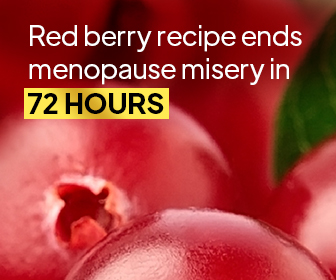If you’re a fan of Carrie Underwood, you probably know she is pregnant again. You probably also know that she mentioned in an interview that getting pregnant after 30 was difficult. If you are a career-focused mama, or still busy traveling the world, you may want to know how to increase fertility later in your life.
The question then becomes how long can you wait? Getting pregnant after 30 isn’t as difficult or as dangerous as you may have been led to believe. As a matter of fact, one out of every five women have their first child after the age of 35.[1] This shows a huge shift in the way women are choosing to have children.
Most couples who have fertility problems aren’t sterile.[2] They just need ways to maximize their ability to get pregnant later in life. We’re going to look at some of the ways to increase fertility naturally. Furthermore, we’ll have a look at the different fertility medications available, as well as ways to increase fertility using technology such as apps and trackers.
Having kids after 30 isn’t impossible. It might take a little more planning, but we’ve got your road map to fertility right here.
Is Having Kids After 30 Dangerous?
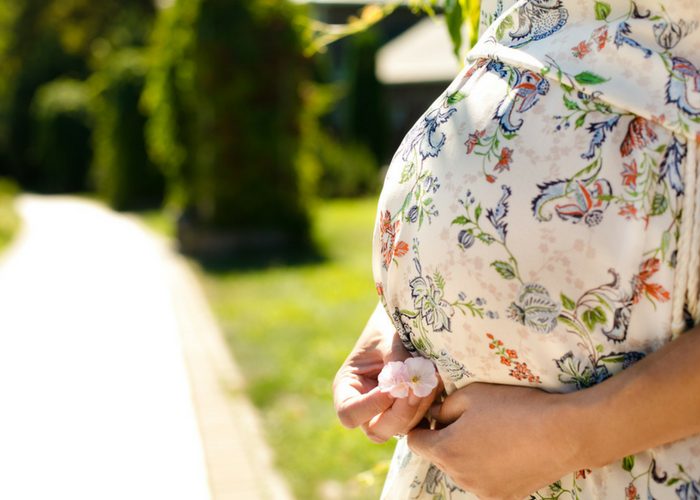
It’s true that your fertility changes as you age. It is much easier to get pregnant when you are in your twenties, but waiting until after the big 3-0 also has its advantages.
In fact, getting pregnant after 30 can be a great thing. You’ll be more likely to have a successful and stable long-term career. You’ll know yourself better than you did in your twenties. You and your partner could have already gone on all of your adventures before settling down. In general, you tend to be a more established person in your 30s.
Furthermore, studies have shown that fertility won’t decrease that significantly until after age 35.[3] Moreover, scientists have said that 80% of women who are under 40 and have sex regularly conceive within one year.[4] You don’t have to delay, but if you do want to postpone pregnancy, it is not an impossible feat to accomplish once you’re ready.
Women in their 30s are a busy bunch. If you like using apps and other devices to keep track of things, you’ll be happy to know you have many options when it comes to increasing fertility with the help of technology.
Increase Fertility Using Technology
Not only are apps, calendars, and checklists helpful for your daily routine, but they can help you get pregnant. Your options to increase fertility can be boosted by technology and apps. Here are a few ways to increase fertility using technology:
Over-the-counter ovulation kits

You can find these kits at any shop that sells over-the-counter drugs. Ovulation kits help you identify when you are ovulating. Like a home pregnancy test, don’t rely on these kits 100%. Technology isn’t foolproof.
Follow an ovulation calendar
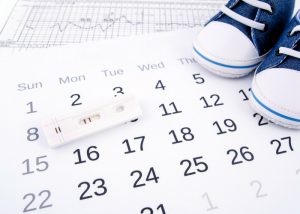
If you aren’t ready to embrace technology, that’s okay! You can track your fertility using old-fashioned pen and paper. Basically, this is a way for you to manually track your cycle. It will give you an idea of when you might be most fertile.
Period trackers

If you are ready and willing to embrace all that technology has to offer, here is a good starting point. Fertility apps and devices can go from pretty basic to fairly advanced technology. There are many options for period tracking apps. They help you learn your cycle as you enter information. Each app is different. Some will be very advanced, tracking lots of data. Others will be very basic so you can simply track your period.
Body trackers
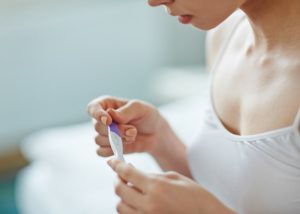
These are apps that help you keep track of things happening to your body. Depending on the app or device, you can track lots of things. For example, you can learn all about your body by tracking your period, your moods, sexual activity, and more. Some devices get better as you plug in more of your information.
Fertility monitors

Finally, devices such as fertility monitors are also an option. Some devices claim to be very accurate when predicting your most fertile times. It will keep track of your temperature, record your periods, cycle length, and illnesses.
This is some of the best fertility technology to use if you’re trying to have kids after 30. By and large, tracking your period, symptoms, and sexual activity is the best natural way to boost fertility. First, as you can see, you can do this manually. You can use any old calendar you’ve got at home. Next, you can pick up a kit at any pharmacy to keep track of fertility. Or, given these points, you can use one of these apps or devices as mentioned.
In any event, no matter which method you choose, it is important to track your fertility. Technology isn’t the only thing that can help increase fertility, though. Science has made vast strides with fertility treatments. Fertility medication is another option that is readily available from your doctor.
The Pros and Cons of Fertility Medications

We live in an era where technology gets smarter every day. Not only that, but the advancements in medication have made it easier to get pregnant after 30 than in decades past. For women who feel as though they may have trouble conceiving, these are some of the drugs that can increase fertility:
Follicle Stimulating Hormones (FSH)
Naturally produced by your body, FSH drugs are a manufactured version of the hormone. If you are having trouble with fertility, this injection produces the FSH for you. It helps to develop your eggs in order to increase fertility.[5] The drug is only available by the brand name Bravelle. Side effects include:
- Increased risk of ovarian cancer
- Blood clots
- Breathing problems
- Increased risk of miscarriage
- Headaches
- Cramps
Clomiphene
In short, this medication helps stimulate your pituitary gland. It comes in tablet form, which is much easier than an injection. Consequently, this drug is often used for women who suffer from polycystic ovarian syndrome, or PCOS.[6] Some of the side effects include:
- Weight gain
- Stomach pain
- Headaches
- Trouble sleeping
- Dizziness
- Hot flashes
- Breast tenderness
Human chorionic gonadotropin (hCG)
Here is another hormone that is made naturally in your body. This drug is a manufactured version. It makes your body release mature eggs and triggers your ovaries to produce more of this hormone. It also helps your body prepare for the egg to implant in the uterus.[7] Furthermore, it comes as an injection. It must be injected into the muscle tissue. Side effects include:
- Fatigue
- Swelling in hands and feet
- Headaches
- Irritability
- Depression
Overall, these are only three of many options to increase fertility with drugs. Most fertility drugs come in pill form or as injections. Ultimately, the advantage to using fertility medication is that you have science on your side. With technology and medicine working together, you can boost fertility much easier.
Ways to Increase Fertility Naturally

To add to your arsenal of tools to increase your chances of getting pregnant, here are some ways you can increase fertility naturally:
Eat healthy foods
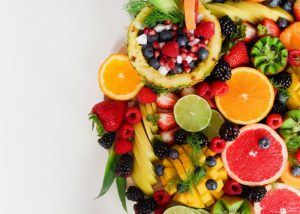
Foods like fruits, vegetables, nuts, and even cheese can help you increase fertility. Eating foods rich in antioxidants can help both men and women to increase fertility.[8] See the complete list below for ideas. In general, eat whole, healthy foods. Proper nutrition is the first step to boost fertility.
Exercise

Pregnancy is less likely if you are overweight or underweight. If you have a BMI of over 30 or under 20, you’ll want to consider modifying your diet or exercise routine.[9] Exercise helps to lower insulin levels which helps improve the regulation of ovulation.[10] Basically, anything to get you moving and your heart pumping is good enough. Think about trying a new high intensity interval training routine. If HIIT is too much, try it’s gentler sister, low intensity interval training (LIIT).
Limit your caffeine

There are other factors that can lower your chance of pregnancy — caffeine, nicotine, or other recreational drugs.[11] Studies have shown that caffeine has negative effects on fertility.[12] Opt for natural energy drinks like green tea, water, or freshly-squeezed juices to get your energy boost.
Stop smoking

If you’re a smoker, you have surely heard this advice before. But if you are trying to get pregnant, this one is really important to boost fertility. Cigarette smoking can damage your ovarian function.[13] Try to kick this habit for good if you are trying to get pregnant.
No more alcohol

Like caffeine, alcohol can have adverse effects on fertility. If you drink more than eight drinks a week, it might take you a much longer time to get pregnant.[14] Not only that, but a study of nearly 8,000 women has proven that drinking a lot of alcohol could lead to reduced fertility.[15]
Have sex

Equally important, get it on! This one may seem obvious, but the more sex you have, the more likely it is that you will get pregnant. This is also something that can help strengthen the emotional bond between you and your partner before a baby arrives.
Try Yoga or Meditation

Generally speaking, using yoga or meditation is a form of self-care. When you practice self-care, you’ll notice a reduction in your stress levels. In the end, reducing stress can boost fertility. In 2014, scientists performed a study on stress and its effects on fertility. The results show that of the women who completed the test, 87% got pregnant within the year.[16]
Try These 10 Foods That Increase Fertility
Along with kicking a caffeine addiction and getting some exercise, diet is super important to boost fertility. If you’re looking for natural ways to increase fertility, try adding these 10 foods into your diet.
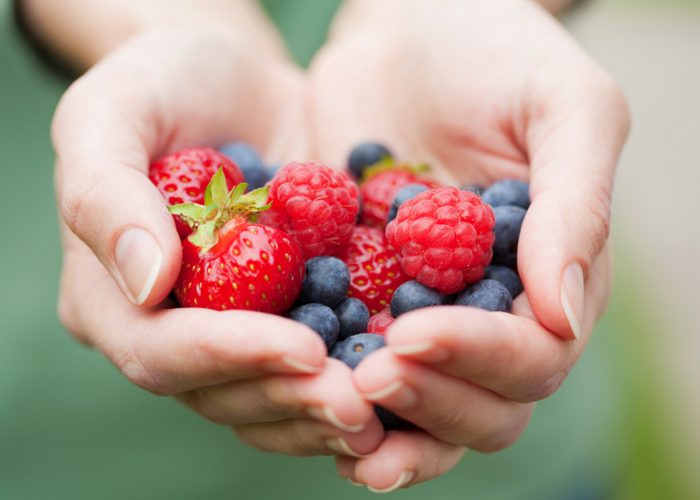
1. Berries
Foods rich in antioxidants can actually help prevent infertility. Eating foods filled with antioxidants can prevent damage to egg cells and sperm.[17]
2. Seafood
Omega-3 fatty acids have been shown to increase fertility in women.[18] Not only that, but it is also an essential part of living well.[19] Eating fish like salmon, tuna, and herring is not only part of a healthy diet, it can help you get pregnant. If seafood isn’t your thing, you can take fish oil supplements.
3. Avocados
In short, this fruit is a superfood. It is filled with good fat, the kind our bodies need. Studies have shown that women who eat avocados have less belly fat.[20] This is important when factoring in a healthy weight for fertility.
4. Cheese
Did this one surprise you? Healthy insulin levels are important when you want to increase fertility. To summarize, cheese has been proven useful as a high-fat dairy choice. One of its main benefits to increase fertility is that it can cut the risk of type 2 diabetes.[21] In general, if you don’t like drinking milk, cheese is a great alternative.
5. Pears
You don’t usually see pears on the list of things you should eat often, but pears are a wonderful source of fiber. Getting more fiber into your diet is definitely one of the best ways to increase fertility. One study found that eating ten grams of fiber or more per day could increase fertility by up to 44% for women over 32.[22]
6. Beans
All in all, reducing your intake of animal proteins is helpful to your fertility. Instead of eating meat, try getting your protein intake from plant sources such as beans. In one study, replacing animal protein with vegetables showed increased fertility. In summary, eating meat showed a 32% higher chance of developing infertility.[23]
7. Decaf green tea
High volumes of caffeine can result in decreased fertility. In fact, one study even proved that women who have a daily intake of over 500 mg of caffeine take almost ten months longer to get pregnant.[24] If you need an energy boost, try having a cup of decaf green tea instead. Avoid high levels of caffeine and drink plenty of water.
8. Dark chocolate
Okay, so you’ve had to ditch the coffee, but you can still have chocolate! In general, to increase your fertility, increase your iron. Dark chocolate is loaded with iron. A 2006 study concluded that iron supplements lowered the risk of infertility in women by 40%.[25] To summarize, buy that candy bar.
9. Sweet potatoes
These tubers are good year-round and go with any main dish. If you aren’t into tea, chocolate, or avocados, definitely try adding sweet potatoes to increase fertility. These babies are filled with antioxidants, which can prevent damage to your eggs.[26]
10. Brazil nuts
Lastly, Brazil nuts are filled with healthy fat. They are a great snack when you’re looking for ways to increase fertility. Just like avocados, they are filled with omega-3 fats which has been shown to lower weight and cut belly fat.[27]
There you have it! Now you know how to increase fertility by eating the right foods. It looks like there is something on that list for everyone. If these foods aren’t appealing to you, take the science behind them and find substitutes. For example, if you don’t like broccoli, try kale or spinach instead. If pears aren’t your thing, try other high-fiber foods like sweet potatoes or beans. These ten foods are simply a starting point.
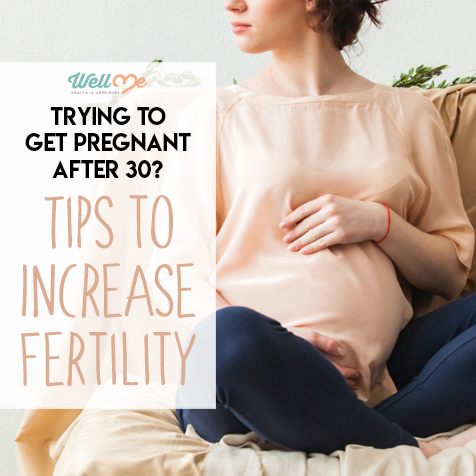
Conclusion
You can delay starting a family. Trying to increase fertility can be a stressful time. By eating healthy and exercising, you can lessen your worry. Carrie Underwood got pregnant after 30, and you can bet that she was eating right and exercising regularly. Movement, meditation, eating the right foods, and using helpful apps are all great ways to increase fertility naturally. Best of luck!
References
- [1] https://www.ncbi.nlm.nih.gov/pmc/articles/PMC3670726/
- [2] https://www.ncbi.nlm.nih.gov/pmc/articles/PMC3670726/
- [3] https://www.ncbi.nlm.nih.gov/books/NBK327786/
- [4] https://www.ncbi.nlm.nih.gov/books/NBK327786/
- [5] https://www.ncbi.nlm.nih.gov/books/NBK535442/
- [6] https://www.obgyn.net/polycystic-ovary-syndrome-pcos/clomiphene-resistant-pcos-treatment-options
- [7] https://www.ncbi.nlm.nih.gov/pmc/articles/PMC4096878/
- [8] https://www.ncbi.nlm.nih.gov/pubmed/17550489
- [9] https://www.ncbi.nlm.nih.gov/pmc/articles/PMC188498/
- [10] https://www.ncbi.nlm.nih.gov/pubmed/28035585
- [11] https://www.ncbi.nlm.nih.gov/pmc/articles/PMC188498/
- [12] https://www.ncbi.nlm.nih.gov/pubmed/9054236
- [13] https://www.ncbi.nlm.nih.gov/pubmed/8885914
- [14] https://www.ncbi.nlm.nih.gov/pubmed/9113254
- [15] https://www.ncbi.nlm.nih.gov/pubmed/14967377
- [16] https://www.ncbi.nlm.nih.gov/pmc/articles/PMC3984126/
- [17] https://www.ncbi.nlm.nih.gov/pmc/articles/PMC1215514/
- [18] https://www.ncbi.nlm.nih.gov/pubmed/28844822
- [19] https://www.ncbi.nlm.nih.gov/pmc/articles/PMC3046737/
- [20] https://www.ncbi.nlm.nih.gov/pubmed/23282226
- [21] https://www.ncbi.nlm.nih.gov/pubmed/21173413
- [22] https://www.ncbi.nlm.nih.gov/pubmed/17882137
- [23] https://www.ncbi.nlm.nih.gov/pubmed/17978119
- [24] https://www.ncbi.nlm.nih.gov/pubmed/9054236
- [25] https://www.ncbi.nlm.nih.gov/pubmed/17077236
- [26] https://www.ncbi.nlm.nih.gov/pmc/articles/PMC1215514/
- [27] https://www.ncbi.nlm.nih.gov/pubmed/23282226


